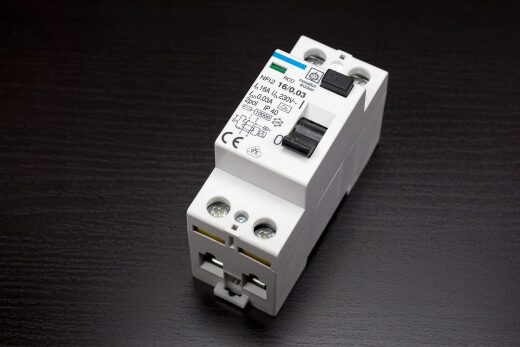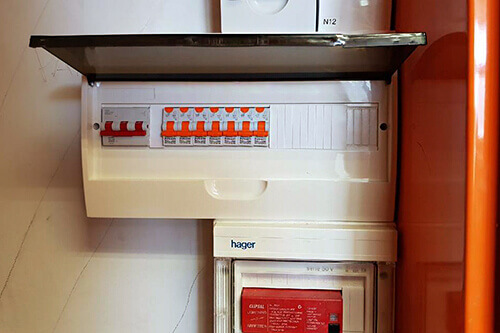There are specific safety protocols you should be following such as installing smoke alarms and residual current device in your home. Electrical faults can happen, and contact with an exposed live wire can prove fatal. Why not do everything you can to protect your home in the case of an electrical issue?
So, what is an RCD? Why should you install one in your home? Do they really work? Here are all the reasons you should consider upgrading your switchboard and installing an RCD in your home.

What is a Residual Current Device?
A Residual Current Device or RCD is designed to prevent you from getting a fatal shock in the case of an electrical short. Not only will an RCD protect you from electrocution should you ever come into contact with a livewire, but it also reduces the risk of electrical fires within your home.
An RCD switch is all about protecting you, your home and your appliances in the event of any electrical issue that may occur.
What Does an RCD Do?
Your RCD will monitor the electric current running through 1 or more circuits within your home. If at any point, it discovers a current moving in the wrong path or surging, it will automatically switch off the entire system.
If there is a fault, it will trip your RCD switch and turn off all of the electricity in your home. Which then entirely reduces the risk of shock or fire.
What Causes RCDs to Trip?
When considering the importance of an RCD for your home, it’s essential to understand what an RCD protects you from. Electrical faults or shorts can happen anytime and can pose dangerous.
Your RCD will trip when there are any of the following issues:
- Electrical Damage to an Appliance
- Exposed or Dangerous Wiring
- Circuit Overload
- Sudden Electrical Surges
- Ground Fault
Your RCD will detect these issues and switch off your power, which will help alert you to the problem.

What is RCD Protected?
What is RCD-protected will depend entirely on the type of switch you have and where it is installed. There are three common types of RCD switches:
A Fixed RCD Switch
A fixed switch is installed directly onto your consumer unit or fuse box. This type of switch offers the highest protection level for your circuit, all your sockets and appliances.
A Socket Outlet RCD
Socket Outlets RCDs are more compact and designed to protect only the specific socket onto which they are installed. This type of RCD will only protect appliances plugged into that particular socket, not your entire circuit.
A Portable RCD
This type of RCD can be moved easily and simply plugs into a socket. You can then plug appliances into the RCD. Again, it will only protect those appliances which are directly plugged into that RCD.
Are RCDs Reliable?
RCDs are incredibly reliable and can be required by law in certain areas. Studies have shown that RCDs are 97% effective in protecting yourself and your family and protecting your home.
It is essential for users to regularly test their RCD to ensure it’s in ideal working condition.
Should you notice that your RCD trips frequently, it may indicate a larger electrical issue within your home. We recommend contacting a licensed specialist should you have this issue.
Get Your Residual Current Device Today
At the end of the day, you want your home to have the best protection it can, and electrical faults can happen at any time. Should your home not be equipped with an RCD, maybe it’s time to consider investing in one. We recommend a fixed RCD switch to give your home and your family the utmost protection.
Call to have your residual current device checked today
✔ Prompt Local Service ✔ High Quality Workmanship ✔ Excellent Value
